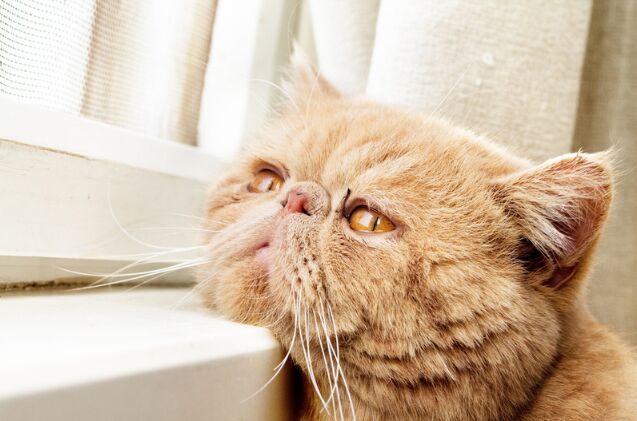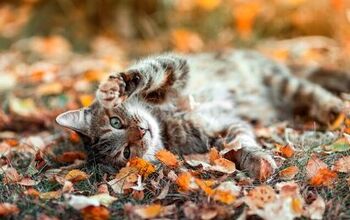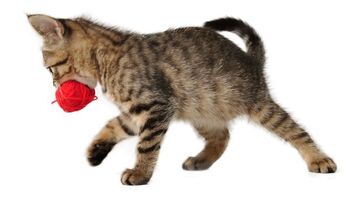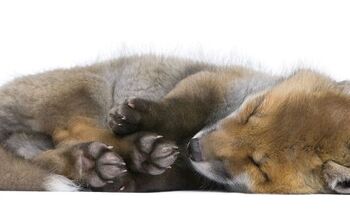Can Cats Suffer From Depression?

Does your otherwise playful and friendly cat no longer seem interested in their favorite toys? It’s natural to worry when you notice a change in your best friend’s behavior.
Changes in your cat’s mood or activity level may signal that something more serious is happening. We often watch for the warning signs of physical illness, but what about depression? Did you know that your cat can also struggle with their mental health?
This article will examine the very real risk of feline depression, including the warning signs, what to do if you suspect your cat may be struggling, and prevention tips.
Discover helpful strategies to boost your cat’s mental health and help them get back to their usual playful, purring self today.
Can Cats Get Depressed?
Cats are known for their independence and aloof attitude, but this doesn’t mean they don’t feel things – sometimes very intensely. Just like people, your cat can suffer from mental health challenges, including anxiety and depression.
Not only does depression impact them mentally and emotionally, but it can also affect their physical health and well-being. This is why it’s important for us to acknowledge the risks, identify signs that something is “off,” and seek help for our cats when needed.
How Can I Tell if My Cat is Depressed?
We all know cats are masters of hiding when they aren’t feeling well. This is why physical illnesses and sicknesses can be so difficult to spot. The same is true for cats who are facing challenges with their mental health. The signs are often subtle, meaning we, as cat parents, must be hyper-vigilant.
Some of the more common warning signs to watch out for include:
- Increased vocalization (constant meowing, yowling)
- Loss of appetite
- Unexplained weight loss
- Sleeping more than usual or at times they’d typically be active
- Loss of interest in activities they once enjoyed
- Decreased grooming or attention to hygiene
- Dull, matted coat
- No longer seeking attention or interaction
- Out-of-character aggression or irritability
- Hiding or isolating themselves
Many of these signs can also be associated with physical illnesses or diseases. If you notice any of these changes, make an appointment with your veterinarian. They will run tests to rule out any physical health problems before discussing recommendations to help manage your cat’s mental health.
What Causes Cat Depression?
Many potential factors could trigger depression or anxiety in your cat, ranging from a genetic predisposition to stress from a significant lifestyle change. Understanding the trigger is often the first step to helping cheer your cat back up. It allows you to address the root cause, if possible.
Here are the most common causes of feline depression:
Moving to a New Home
If you have recently moved to a new home or apartment, your cat may be stressed by their new surroundings. Moving means that every aspect of their life suddenly gets flipped upside down. They are now faced with new sights, sounds, and smells. Their familiar hiding places that once made them feel safe and secure are now gone.
Construction or Renovation
Work being done on your home while you’re still there is stressful for everyone – including your cat. Some cats are incredibly sensitive to loud noises, while others are bothered by the disruption it causes to their familiar space.
Arrival of a New Family Member
Any addition to the family can trigger stress in your cat. This includes a new baby, an adopted child, a new partner, a roommate, or a new pet. Introducing someone new to the home leads to changes to the home itself, their routine, and potentially their existing relationships.
Visitors Staying in the Home
What if the person coming into your home is only there temporarily? Your cat doesn’t understand that this isn’t a permanent change. All they know is that someone new is in the house, leading to changes to their schedule and environment.
Loss of a Family Member
Like us, our cats also experience grief. Whether someone in the family has recently passed away or just moved out of the home, they are experiencing a sense of loss. One often overlooked example is when a child moves away for school. While they may plan to return in the summer or after graduation, your cat doesn’t understand that. All they know is that a family member is no longer around.
Separation Anxiety
We often associate separation anxiety with behavioral problems, as cats become stressed and act out. However, we need to consider why they are acting out. Cats who struggle with separation anxiety become incredibly stressed and upset that they are left alone for extended periods, like when you are gone for work.
Injury, Illness, or Other Pain
If your cat is suffering from pain or discomfort from a recent injury or illness, it may have a bigger impact than just their physical well-being. This can sometimes be difficult to pinpoint, as it could range from something as obvious as a traumatic injury from being hit by a car to something as hard to spot as dental pain.
Lack of Mental Stimulation
One possible cause of feline depression that is often overlooked is a lack of mental stimulation, aka boredom. Cats require both physical and mental enrichment. If they aren’t getting this in the home environment, it can hurt their mental health.
How Long Does Cat Depression Last?
There is no one timeline that you can place on feline depression. It is going to depend on several factors, including the reason for your cat’s depression, any pre-existing mental health struggles before the trigger, and the steps you are taking to help them work through it.
Generally speaking, the root cause of the depression has to be addressed before cats can recover and return to being their happy, playful selves. A cat grieving the loss of a family member may show improvement after five or six months. However, if you are doing a major home renovation that will take a year or more, your cat’s stress levels and struggles will likely last even longer.
Can My Depression Affect My Cat?
If you are currently struggling with your mental health, you may be concerned that your depression can affect your cat. The good news is that depression is not contagious. It’s not something that will just be “passed on” like a virus. However, that doesn’t mean it can’t impact your cat in some way.
Cats are highly perceptive. When we build a strong bond with our furry friend, it goes beyond just caring for one another. Many experts believe that our cats mimic our emotional state. If you are stressed, your cat will pick up on your stress. If you’re happy, they may be influenced to feel joy. And, by extension, if you are depressed, it may bring your cat down emotionally.
This doesn’t necessarily mean your depression will cause your cat to be depressed. However, if your cat is already starting to feel down or experiencing triggers that could lead to depression, your emotional state may play a small part in what they are experiencing.
What can you do as a cat parent who may be struggling with your own mental health challenges? Prioritize your self-care. The better you take care of yourself and improve your mood, the better for your and your cat’s health and well-being.
How Can I Help My Depressed Cat?
Of course, we all want what’s best for our feline friends. If you have noticed signs your cat is feeling depressed, what can you do to help them move forward? While there is no guaranteed path to recovery (like human mental health), you can take steps to boost your cat’s mood and help make them feel better while they work through their specific trigger or experience.
Address the Trigger
If possible, address whatever is triggering your cat’s depression directly. For example, if your cat is struggling with dental pain, see a veterinarian to treat the problem. If your cat feels bored from a lack of physical and mental stimulation throughout the day, consider improving their home environment with cat shelves, scratch posts, and interactive toys. You can also schedule some playtime in your schedule to both provide enrichment and strengthen your bond.
Try toys that are motion or touch-activated to encourage playtime even while you’re at work. Our cat Pippen’s favorite is the PetSafe Peek-A-Bird Interactive Bird Hunt Toy. A small sensor in the front is triggered by movement, triggering a collection of feathers to move around in and out of the toy.
Not every trigger can be solved. If your cat is currently feeling grief after the loss of a family member, you will have to give them time to process and work through these emotions. However, recognizing that as the cause can help you better support them in the days ahead.
Create and Stick to a Routine
Like dogs, cats thrive on structure and predictability. If some elements in their lives are changing, providing them with a routine that they know and recognize can help them feel as though they are still in control. This means feeding them at the same time and place, creating designated playtime, or establishing a nighttime routine that tells them it’s time for bed.
Show them Love and Compassion
Your cat isn’t trying to make this situation difficult for you. They are having a hard time and need your help. Even if they aren’t seeking attention, go out of your way to approach them and shower them with love. Scratch their favorite spot under their chin and cuddle them (if they enjoy it). Take time to dedicate yourself entirely to your cat, showing them how much you care for them.
Create a Safe Space
If there’s a chance your cat’s stress levels are resulting from outside stress, like renovations or someone new in the home, consider creating a place where they can feel safe and secure. A good option would be a room that can be closed off from the rest of the house, like your bedroom, safely distanced from any noise or activity. Include familiar items like their favorite toys or bedding.
Alternative Therapies
There are many forms of alternative medicine or alternative healing that could potentially support and improve your cat's overall mood and emotional well-being. Some options to consider include aromatherapy, massage therapy, or acupuncture. These alternative therapies can be used independently or as part of a larger treatment plan, such as pairing them with medications.
Antidepressants or Anti-Anxiety Medications
Just as some people benefit from medication to treat their mental health conditions, so too do some cats. If you have tried different ways to boost your cat’s mood and nothing is working, it may be time to talk to your veterinarian. After all, why allow your cat to suffer if a solution is available?
Your cat may only need to take the medication for a short time as they work through a difficult time, like grief. However, some cats will have the best quality of life by remaining on these medications long-term. Your vet can discuss your options and how they may impact your cat’s unique situation.
Final Thoughts: Cats and Depression
While we can’t speak with our cats to fully understand what they are feeling or what is going through their minds, they can show signs of experiencing mental health struggles like depression. As cat parents, it’s our job to learn the warning signs and watch for any red flags or changes in behavior.
If something seems “off” with your cat, contact your veterinarian. They will be able to rule out any physical medical problems first.
There is no “quick fix” for cats with depression. However, just as with people who face struggles with mental illness, we can support them and help them through this difficult time. Play with their favorite toys, spoil them with their favorite foods and treats, and shower them with love.
They may still need time to work through whatever triggered these heavy feelings, but you can make it easier for them to navigate it all from day to day.
Join the PetGuide community. Get the latest pet news and product recommendations by subscribing to our newsletter here.

Britt Kascjak is a proud pet mom, sharing her heart (and her home) with her “pack” which includes her husband John, their 2 dogs – Lucifer and Willow – and their 2 cats – Pippen and Jinx. She has been active in the animal rescue community for over 15 years, volunteering, fostering and advocating for organizations across Canada and the US. In her free time, she enjoys traveling around the country camping, hiking, and canoeing with her pets.
More by Britt
























